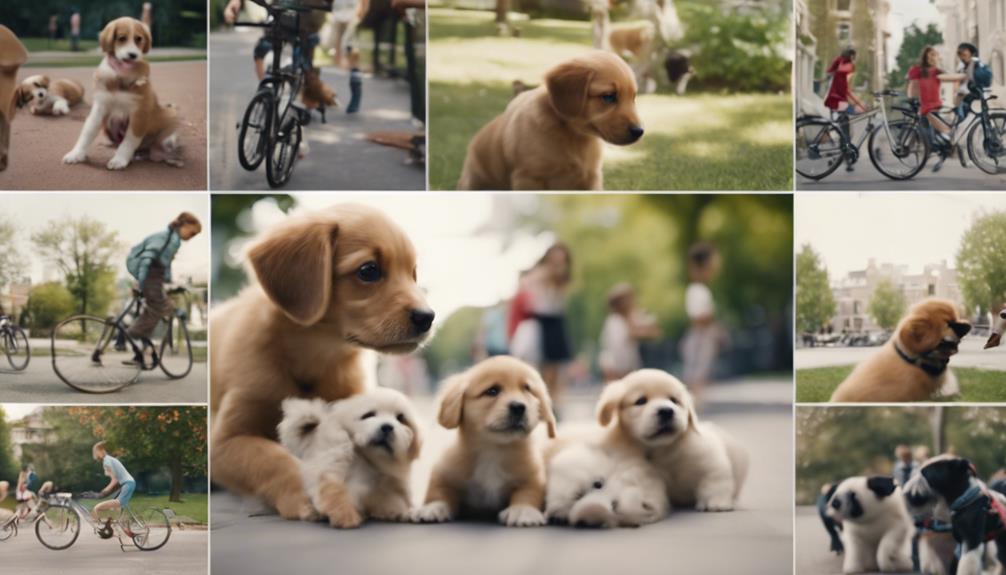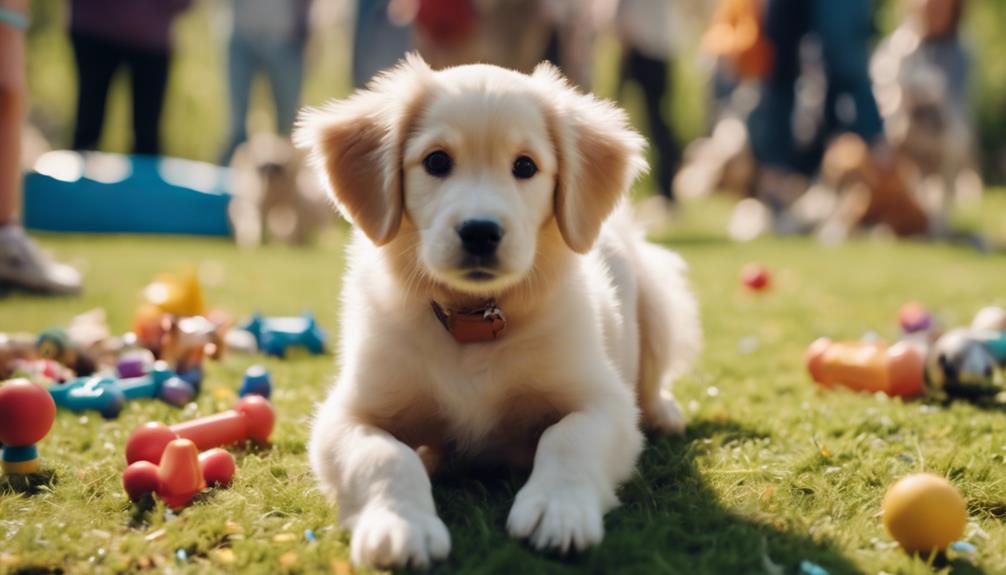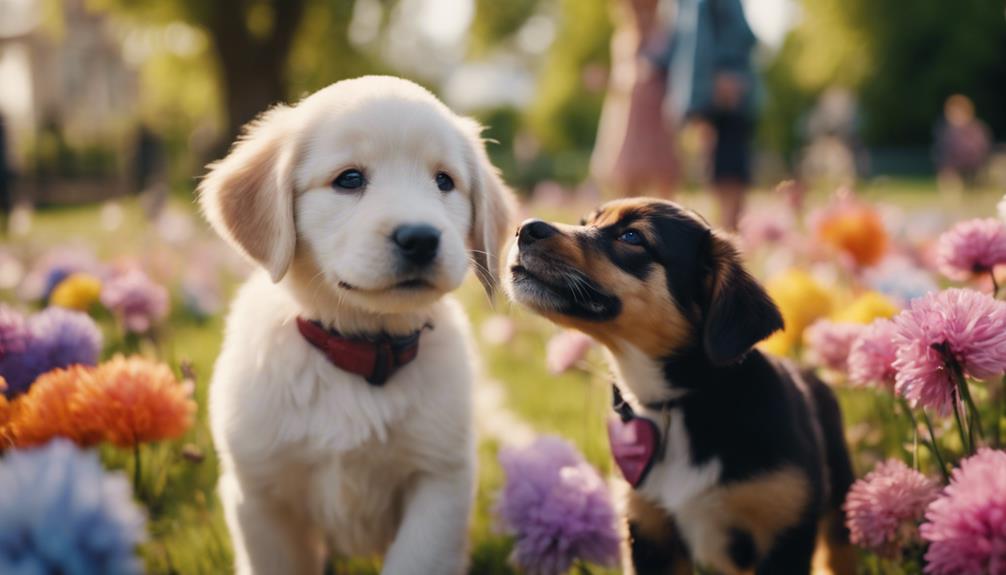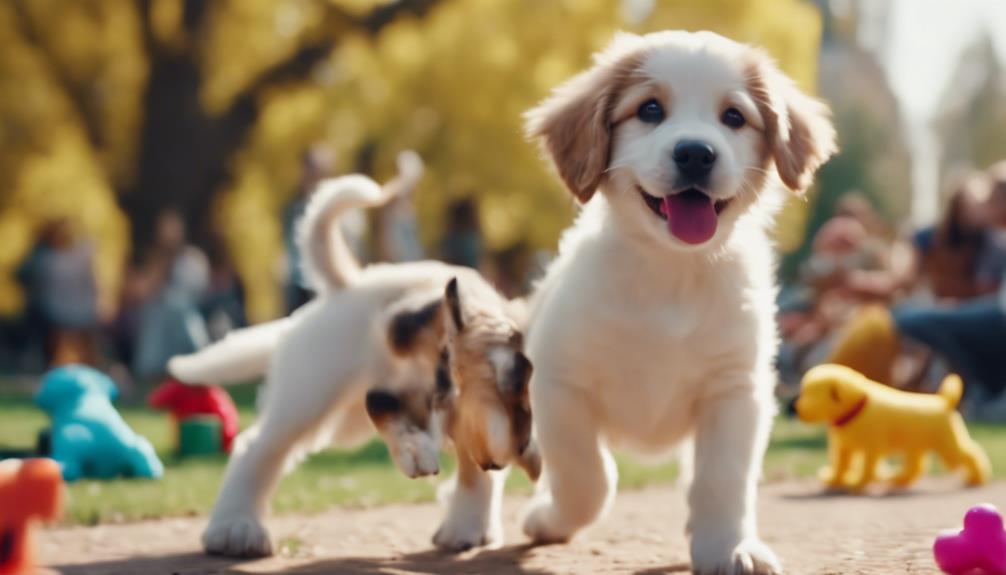Early socialization is a pivotal component in the development of dogs, particularly during their formative weeks. This critical phase not only shapes their temperament but also influences their ability to interact with various stimuli throughout their lives. By introducing puppies to diverse experiences, owners can mitigate potential behavioral issues and foster adaptability in their adult dogs. However, the question remains: what specific strategies can be employed to ensure effective socialization, and what long-term benefits can be anticipated from these early interventions?
Understanding Corgi Temperament

Understanding the temperament of Corgis is essential for effective early socialization, as these intelligent and spirited dogs exhibit distinct personality traits that influence their interactions with humans and other animals.
Corgi personality traits include a playful nature, high energy levels, and a strong herding instinct. These dogs are known for their loyalty and affectionate behavior, making them excellent companions.
Additionally, Corgi breed characteristics often involve a confident demeanor and a willingness to please. However, their strong-willed attitude can lead to stubbornness if not managed properly.
Early exposure to various environments, people, and other pets is crucial for fostering positive behaviors. By recognizing and respecting their unique temperament, owners can better prepare Corgis for a well-adjusted social life.
Benefits of Early Socialization
Early socialization plays a vital role in shaping a Corgi's behavior and adaptability, enhancing their ability to interact positively with people and other animals, which is especially important given their unique temperament traits.
One of the primary benefits of early socialization is the development of essential social skills. Corgis learn how to communicate effectively with other dogs and understand human cues, fostering positive interactions.
Additionally, early exposure to various environments and experiences contributes to confidence building. A well-socialized Corgi is less likely to exhibit fear or aggression in unfamiliar situations, leading to a more balanced and happy pet.
Key Socialization Periods

Critical periods of socialization are essential for Corgis, as they significantly influence their behavioral development and long-term adaptability to various environments.
During puppy development, these critical periods typically occur between three and fourteen weeks of age. This timeframe allows puppies to learn essential social skills, such as interacting with other dogs and people.
Key stages during this time include:
- Three to five weeks: Initial social interactions begin.
- Five to seven weeks: Exploration of different environments is crucial.
- Eight to fourteen weeks: Puppies become more receptive to novel experiences.
Failing to properly socialize Corgis during these critical periods can lead to fearfulness or aggression later in life.
Thus, early socialization is crucial for a well-adjusted adult dog.
Safe Socialization Environments
Creating safe socialization environments is vital for ensuring that Corgis can interact positively with other dogs and people without fear or anxiety.
One effective strategy involves enrolling puppies in puppy classes, where they can learn essential skills in controlled settings. Dog parks can also provide opportunities for socialization, but it's important they are well-maintained and monitored.
Supervised playdates among trusted friends or family members allow for safe interactions. Additionally, breed specific playgroups can cater to the unique needs of Corgis.
Group training classes help reinforce good behavior during socialization, while outdoor adventures expose them to new sights and sounds.
Essential Socialization Experiences

Essential socialization experiences are crucial for shaping a well-adjusted dog, helping them to navigate various environments, encounters, and interactions throughout their lives. These experiences not only enhance their confidence but also foster positive behavior.
Key socialization opportunities include:
- Puppy playdates: Allowing dogs to interact with their peers promotes healthy social skills.
- Community events: Exposing dogs to diverse people and situations helps them adapt to new environments.
- Leash training: Teaching dogs to walk calmly alongside their owners in public settings builds discipline.
Corgi Interaction With Other Pets
Corgis, like many dog breeds, benefit significantly from early socialization with other pets.
Engaging in playtime with various animals not only fosters positive relationships but also helps manage potential behavioral challenges that may arise.
Understanding the importance of these interactions can lead to a well-adjusted and sociable Corgi, enhancing both their quality of life and that of their companions.
Benefits of Socialization
Socialization provides numerous benefits for Corgis, particularly in fostering positive interactions with other pets, which can enhance their overall behavior and well-being.
By engaging in early socialization, Corgis develop essential social skills and experience confidence building, leading to more harmonious relationships with fellow animals.
Key benefits include:
- Improved Communication: Corgis learn to read body language and vocal cues from other pets.
- Reduced Anxiety: Early exposure helps decrease fear and anxiety in unfamiliar situations.
- Enhanced Playfulness: Socialized Corgis are more likely to engage in appropriate play behaviors.
Ultimately, strong socialization practices lead to happier, well-adjusted Corgis, benefiting both pets and their owners.
Playtime With Other Pets
Engaging in playtime with other pets significantly enhances a Corgi's social skills and fosters positive relationships, laying a foundation for well-rounded interactions.
Regular interactions at dog parks or through supervised playdates allow Corgis to learn essential dog park etiquette. This includes understanding boundaries, sharing toys, and recognizing social cues from other animals.
Benefits of supervised playdates include ensuring safety, as an attentive owner can intervene if necessary. These opportunities also help Corgis develop confidence in diverse environments, reducing anxiety in future encounters.
Additionally, observing how other pets interact provides valuable lessons in communication and play styles.
Ultimately, these experiences promote a friendly demeanor, allowing Corgis to thrive in social settings and build lasting friendships with their furry companions.
Managing Behavioral Challenges
Effective management of behavioral challenges during interactions with other pets is crucial for fostering a harmonious social environment for dogs. Corgis, like other breeds, can have specific behavioral triggers that may lead to anxiety or aggression. Understanding these triggers is essential for effective anxiety management.
To create positive interactions, consider the following strategies:
- Identify Triggers: Observe what causes anxiety or aggression in your Corgi.
- Controlled Introductions: Gradually introduce your dog to new pets in a controlled environment.
- Positive Reinforcement: Reward calm behavior with treats or praise, reinforcing desired actions.
Overcoming Fear and Anxiety

To foster a confident demeanor in dogs, it is essential to implement strategies that address and mitigate fear and anxiety during their formative socialization periods.
Early exposure to various environments, people, and other animals helps to reduce fearful behaviors. Gradually introducing dogs to potential anxiety triggers—such as loud noises, unfamiliar settings, or new experiences—can create positive associations, thus lessening their fear responses.
Socialization events should be planned carefully, ensuring they are enjoyable and stress-free. Recognizing signs of anxiety, like excessive barking or retreating, allows owners to intervene appropriately.
Encouraging gentle interactions and rewarding calm behavior can further promote resilience. By prioritizing these strategies, dog owners can cultivate a well-adjusted companion, minimizing future behavioral issues.
Training Techniques for Socialization
Training techniques for socialization are essential for helping dogs develop into well-adjusted pets.
Two effective methods include positive reinforcement, which rewards desired behaviors, and controlled exposure activities, where dogs are gradually introduced to new experiences in a safe environment.
Implementing these techniques can significantly enhance a dog's confidence and social skills, making it easier for them to interact with other animals and people.
Positive Reinforcement Methods
Positive reinforcement methods are essential in fostering desirable social behaviors in dogs during their critical developmental stages. These positive reinforcement techniques encourage good behavior through training rewards, creating a strong bond between the dog and handler.
By using rewards effectively, trainers can help dogs feel more confident and secure in social settings. Key elements of positive reinforcement include:
- Consistency: Regularly applying the same rewards helps dogs understand expected behaviors.
- Timing: Providing rewards immediately after a desired behavior increases their effectiveness.
- Variety: Using different training rewards keeps the dog motivated and engaged.
Employing these methods can lead to well-adjusted, sociable dogs capable of thriving in various environments.
Controlled Exposure Activities
Controlled exposure activities are vital for socializing dogs, as they allow for gradual acclimatization to various stimuli and environments.
Engaging in puppy playdates is an excellent way to introduce your dog to peers in a controlled setting, promoting healthy interactions. These playdates can enhance communication skills and reduce fear of other dogs.
Park outings also serve as beneficial exposure activities. By visiting different parks, your dog can experience diverse environments, sounds, and smells. This helps build confidence and reduces anxiety in unfamiliar situations.
Both puppy playdates and park outings should be supervised, ensuring positive experiences.
Long-term Effects of Socialization

The long-term effects of early socialization in dogs are profound, influencing their behavior, emotional stability, and adaptability throughout their lives. Proper socialization can significantly alter long-term behavior, leading to a more well-adjusted canine companion.
The socialization impact can manifest in various ways:
- Reduced Anxiety: Dogs are less likely to develop anxiety when exposed to diverse environments.
- Improved Temperament: Early exposure helps in forming a friendly and confident disposition.
- Enhanced Learning Ability: Socialized dogs tend to adapt more quickly to new commands and situations.
Investing time in early socialization ensures that dogs grow into balanced and sociable adults, fostering a harmonious relationship with their families.

